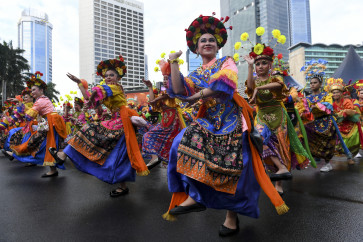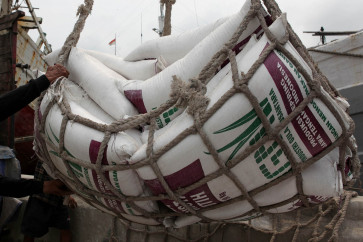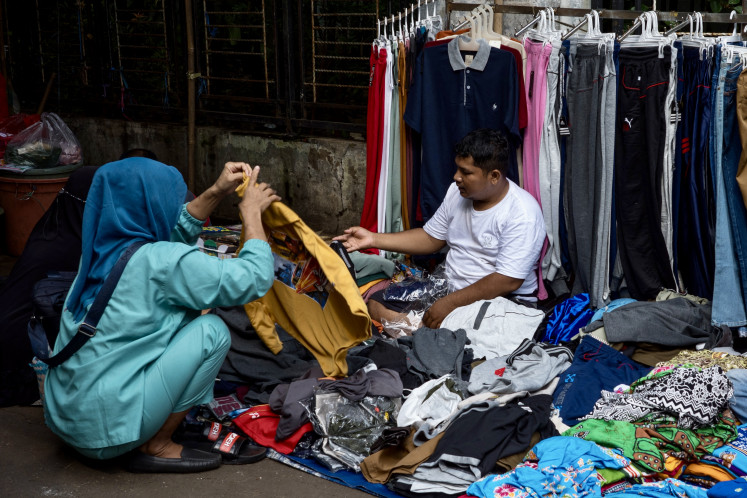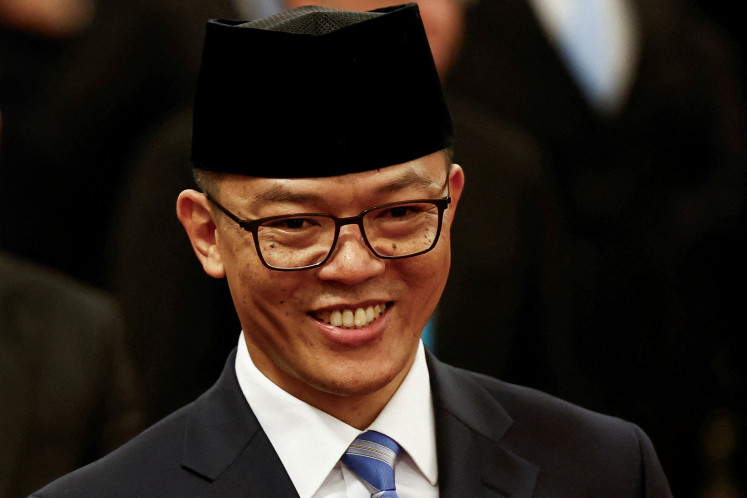Popular Reads
Top Results
Can't find what you're looking for?
View all search resultsPopular Reads
Top Results
Can't find what you're looking for?
View all search resultsGinan Koesmayadi: Kicking it with an inspiration
The old adage “what doesn’t kill you makes you stronger” rings true for Deradjat Ginandjar Koesmayadi, a recovering drug addict who is also the poster boy for Rumah Cemara, a shelter for marginalized people in Bandung
Change text size
Gift Premium Articles
to Anyone
T
he old adage “what doesn’t kill you makes you stronger” rings true for Deradjat Ginandjar Koesmayadi, a recovering drug addict who is also the poster boy for Rumah Cemara, a shelter for marginalized people in Bandung.
Courtesy of Rumah Cemara
For the 31-year-old, life began, ironically, when he was diagnosed with HIV 11 years ago. Ginan, as he is affectionately known, found out about his HIV status after he entered a drug rehabilitation center that required him to have a medical checkup.
“I had grown tired of living on the streets, doing petty crimes to support my dependence on drugs. In 2000, I asked my family to get me into rehab. But I encountered yet another bump on the road when I was told that I had contracted HIV, possibly through used needles I used to inject drugs,” he said.
Ginan, who started using drugs at the tender age of 14, almost lost hope. It seemed, he said, that the whole world was turning against him. But the beauty of hitting rock bottom is that there’s no other way to go but up.
It didn’t take him long before he started taking control of his life. Ginan, who was 20 years old at that time, realized that he only had himself to answer to when it came to mapping the direction of his life.
“The biggest barrier a person with HIV has is self-doubt. When you limit your own ability because you are HIV positive then you are doomed to failure,” he said.
To change the public’s perception of the disease, he said, people with HIV must first have faith in themselves.
“When it comes to stigma and discrimination toward HIV, I believe that a collective change will happen once an HIV positive person decides to change his or her life. As such, self-worth is key,” he shared.
Ginan believes that a change from within is a change of energy, which is reflective and transcendental. With this in mind, he made peace with his troubled past.
And after three years in rehab, Ginan, together with four friends, founded Rumah Cemara. The objective of the community-based organization is to improve the quality of life of society’s outcasts – HIV positive people, drug addicts and the homeless.
“In the long run, we would like society to treat us as normal human beings – neither discrimination nor privilege is needed. We would like to change the prevailing mindset that we are a useless, sinful bunch. That’s all,” he said.
Rumah Cemara, with 85 percent of its staff HIV positive, has been actively involved in various activities concerning HIV prevention and treatment as well as group support and counseling for drug users.
As of December 2010, Rumah Cemara has housed 398 patients.
What has been the most challenging part of establishing and running such an organization?
“The most challenging part was to keep our spirits up – telling ourselves as founders that we can do it against all odds. We needed to believe in ourselves in order to lay down the ideology, core values and vision,” he said.
“Money and resources are not easy matters. But we can always find a way to get them. But once a spirit is broken, then it’ll be the end of the road,” he said.
Quick-witted Ginan has the air of a leader. When explaining concepts, he was apt, fiery and enthusiastic. When analyzing problems, he possessed a reassuring quality that could make a big problem sound simple and solvable.
Yet, he didn’t seem to take himself too seriously, evident in unpredicted thunders of laughter every now and then during the course of the interview.
And don’t be fooled by his tattooed body, cheeky grin and youthful look, as the political science graduate from Padjajaran University is a rather business-savvy activist.
His recent attempt at gaining public sympathy and support through soccer has met with an enthusiastic response from the public. Soccer, Ginan admitted, has been his lifelong passion.
“For me, soccer has a broader meaning than merely sport. I feel healthy and alive when I run and chase the ball. I treasure the psychological effect it has on me,” he shared.
In 2006, Ginan started regular soccer practices called “Soccer for Change” for people living with HIV. The program proved to be an effective way to break down some of the negative perceptions about HIV positive people and drug addicts as more youngsters in the community joined the program.
To date, the program has engaged over 300 people living with HIV and addiction in West Java. The group emerged as the winner in a national soccer competition organized by the National Narcotics Agency (BIN) in 2009 and 2010.
A chance encounter with Kicking It, a 2008 documentary that tells the story of seven homeless people at the Homeless World Cup, prompted Ginan to send an email to the event’s committee.
“To my delightful surprise, Rumah Cemara was chosen by the committee to represent Indonesia. I wanted so badly to join last year’s competition in Rio de Janeiro,” he enthused.
“I wanted to tell the world that one can live with HIV and be fit. This was my way to beat the prevailing stigma and discrimination in society,” he said.
Alas, it wasn’t an easy road to get to Rio, as Rumah Cemara didn’t have enough funds to fly its team there. This year, Rumah Cemara was invited back by the committee to join the competition in Paris. Ginan and his team members were not going to let this opportunity slip by.
They made numerous efforts to raise funds. But it was popular television host Andy F. Noya and PT Sido Muncul that made Ginan’s dream a reality by sponsoring his trip to Paris.
Following the unexpected donation, Ginan walked from Bandung to Jakarta as an act of gratitude. This garnered him nationwide sympathy, which he deemed important to fight for his cause.
The Rumah Cemara team jetted off to Paris last August. They didn’t bring the championship home, but they certainly brought hope to other troubled youths.
“I believe in using soccer as a solution to social change. It proves to be an effective intervention to educate people about HIV and drug abuse, as well as to reduce stigma and discrimination in society,” he said.
When asked to share a word of advice to other HIV positive people, Ginan said: “Difficulties are intended to make us better, not bitter.”










